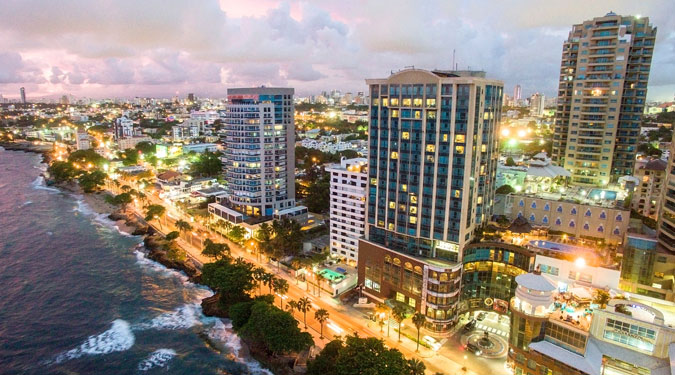1) CORPORATION
The corporation (Sociedad Anónima) is an entity with a legal existence formed by two or more partners who only assume the risk of losses up to their capital contributions. Corporations may or may not seek funding from the securities markets as a form of financing and expansion of their operations. If they do so, they will be required to obtain an authorization from the Dominican Republic’s Securities Superintendent.
Capital and Transfer Provisions
Corporate capital is represented by shares, which are essentially negotiable securities. The minimum authorized corporate capital is RD$30,000,000.00 and 10 percent of such amount always must be paid and represented by outstanding shares. The law does not establish any restriction on the assignment of shares. Nevertheless, it provides that shareholders may agree to restrictions, so long as they do not contain any permanent prohibition on the transfer of shares.
Administration, Supervision, and Decision Making by Shareholders
A board of directors composed of a minimum of three members is normally in charge of managing these companies. In terms of supervision, the law establishes that corporations must be supervised by one or several vigilance officers that are named for two fiscal periods and primarily are appointed to verify the annual accounts presented by the board of directors and the documents addressed to the shareholders indicating the annual accounts and financial situation of the entity.
The supreme decision making entity is the general meeting of shareholders, who annually receive a report of all the company’s operations, decide on the distribution of dividends, and approve the management’s annual report.
2) SIMPlIFIED CORPORATION
The simplified corporation (“S.A.S.”) is a limited liability company formed by two or more partners whose losses with respect to the company’s activities are limited to their capital contributions. Unlike a corporation, this company allows some freedom to shareholders to regulate the organizational structure of the entity in its bylaws, according to the needs and objectives of the company.
CAPITAL AND TRANSFER PROVISIONS
The capital of a simplified corporation is divided into shares, which only can be issued in registered form. The minimum authorized capital required is RD$3,000,000.00 and at least 10 percent of such amount needs to be subscribed and paid in.
ADMINISTRATION AND SUPERVISION
The partners may, by means of the bylaws, freely determine the organizational structure of the company, which can be managed and directed by a board of directors or by one or more directors. Also, a simplified corporation does not require the supervision of a vigilance officer, unless it issues debt instruments.
3) LIMITED LIABILITY COMPANY
A limited liability company (“S.R.L.”) is the entity formed by a minimum of two and a maximum of 50 partners, none of whom may have personal responsibility for company debts. This form of commercial organization is used for medium-sized businesses and closed capital entities.
CAPITAL AND TRANSFER PROVISIONS
The capital of an SRL is divided into equal parts denominated corporate quotas or units, which cannot be represented by negotiable shares or have a nominal value below RD$100.00.
The minimum corporate capital of an SRL is RD$100,000.00, which must be fully paid-in and outstanding. Quotas or units, which represent the capital, are securities that are not in essence negotiable securities. These securities generally are transferable in cases of a succession due to the death of a partner, the liquidation of marital property, and among family members. The assignment of corporate units to third parties, as well as the creation of pledges on them, requires the consent of three fourths of the partners, apart from other conditions and formalities.
ADMINISTRATION, SUPERVISION, AND DECISION MAKING
The administration is handled by one or several managers who must be individuals and who individually are equipped with the broadest powers to act in the name of the company under any circumstances. The designation of a vigilance officer is not necessary, but the financial statements of the company must be audited.
Each partner has the right to vote on SRL decisions and has the same number of votes as the corporate quotas that the partner possesses. General meetings of unit owners may be held for the approval of SRL decisions but are not necessary.
4) INDIVIDUAL ENTERPRISE OF LIMITED LIABILITY
An individual enterprise of limited liability (“E.I.R.L.”) is a company of limited liability that belongs to one person, that has the legal ability to exercise rights and obligations, and that forms an independent and separate entity from the rest of the assets of the person who owns the E.I.R.L. Legal entities may not incorporate or purchase businesses of this type.
CAPITAL AND TRANSFER
The amount of contributions to be made by the owner of an E.I.R.L. may be freely established and increased, in accordance with the procedures established by law. An E.I.R.L. may be transferred in accordance with the rules established by law, but only to another natural person.
5) FOREIGN COMPANIES
A corporation duly incorporated anywhere in the world is recognized in the Dominican Republic upon confirmation of its legal existence by the appropriate authorities, according to the formalities prescribed by the law of the place of incorporation. Dominican law provides that foreign companies, as to their existence, capacity, operation, and dissolution, are governed by the law of the place of incorporation. Their operations and activities in the Dominican Republic are subject to Dominican law.
Foreign companies setting a branch or permanent establishment in the Dominican Republic or that regularly engage in commercial transactions in the country must be registered in the Commercial Register and join the National Taxpayers Registry kept by the Directorate General of Internal Revenue. Dominican law recognizes the equality of foreign companies with local companies and, therefore, declares that they have no obligation to provide any kind of bail or guarantee before initiating litigation.
PERMANENT ESTABLISHMENT
A permanent establishment is defined by Dominican legislation as a fixed place of business in which an individual or a company, either local or foreign, conducts all or part of its business, including having a place of management, offices, branches, and services, among other things, provided the fixed place exceeds six months within a one-year period.
Following the enactment of Regulation No. 50-13 dated February 13, 2013, the concept of foreign company was broadened to include entities that in their home country may or may not have legal personality, such as
partnerships,
trusts and
branches, among others.
It also requires non-resident taxpayers with permanent establishments to register before the DGII and to submit information, such as data identifying their taxpayer registration number in their country of tax residence and data concerning equity holders with more than 10 percent of the capital or interest in such non-residing person or entity, in addition to any other information that may be required from any taxpayer.
Likewise, non-resident permanent establishments are required to appoint a local taxpayer to represent it with respect to its tax obligations and to notify the DGII of the appointment. This designation of a local representative also is required for persons or entities residing in countries or territories with preferential tax regimes that have low or no taxation or that are considered tax havens if they own property or rights in the Dominican Republic.
FREE ZONES
Free zones are geographical areas within the Dominican Republic that are subject to special fiscal and customs regimes, within which, companies dedicated to the production of goods or the provision of services exclusively for the international market, are located.
The free zone system is the source of 71 percent of the products exported by the Dominican Republic, in addition to being the primary recipients of foreign direct investment in the country. The Dominican free zone system always has been especially attractive to foreign investors for the advantages it offers, including:
1. The regime of tax incentives, including export subsidies or energy expenditures;
2. Preferential access to the United States and European markets, without the application of customs tariffs;
3. The possibility of obtaining financing from local and foreign institutions; and,
4. The availability of a capable workforce.
Dominican law seeks to promote the establishment of free zones and the growth of those in existence, regulating their functioning and development. Law No. 8-90 on Promotion of Free zones created the National Free zones Council (“CNZF”), the organization in charge of regulating, supervising, defining, and classifying free zones. The CNZF establishes the requirements for their installation and the applicable incentives and regulates, on an exceptional basis, the sale of their goods in the local market (taxed under a special rate).
There are other laws establishing tax incentives regimes, such as the laws creating a special zone of frontier development. These laws declare the national interest to be the promotion and protection of companies establishing operations within that geographical area, and intend to promote the development of the frontier region with the neighboring country of Haiti. They establish a preferential system that, subject to specific limitations, grants additional fiscal incentives for the constitution of free zones and received utilities.
INCOME TAX
Any legal entity or individual residing in the Dominican Republic as well as undivided estates located in the country are subject to the payment of taxes based on their income from Dominican sources and from sources outside the Dominican Republic deriving from investments and financial gains.
Individuals residing or domiciled in the country pay an income tax from any income earned for the work rendered as employees, as well as from income earned from the exercise of a profession or liberal profession, commercial activities, return on investments, or financial earnings from abroad. The tax rate varies depending on the amount of income and change annually when adjusted for inflation.
For the purposes of the law, capital companies, public companies with income of a commercial nature, and other entities, undivided estates, associations of persons, societies in fact, irregular societies, and any other form of organization are considered legal entities.
In accordance with Dominican tax law, these entities are subject to the payment of taxes on their net income, revenues, utilities, and benefits obtained in a fiscal year, minus the deductions allowed by law. The applicable income tax rate for legal entities with domicile in the country is 27 percent over their net income, after deductions allowed by law.
The law establishes mandatory monthly advanced payments of income tax, which ultimately are reconciled with the annual payment required to be made at the end of the year.
Individuals or legal entities carrying out commercial and industrial activities do not have to pay the advanced payment as long as the annual income from those activities is equal to or less than DOP$5,000,000.00.
Since 2013, taxpayers in free zones must pay income tax at a rate of 3.5 percent for the transfer of goods and services rendered in the Dominican Republic. From 2013 to 2015 (inclusive), the adjustment to the tax scale based on which individuals are taxed does not apply.

